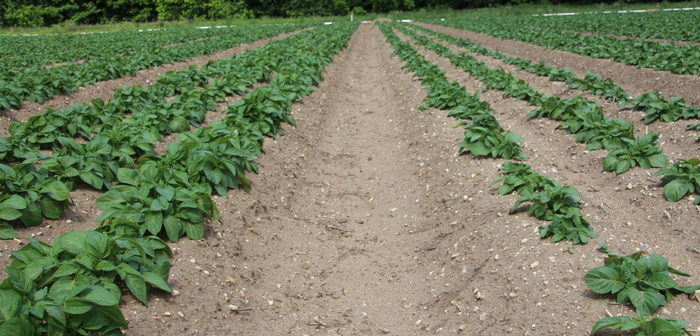BASF are launching the first SDHI fungicide for in-furrow treatment of Rhizoctonia solani in potatoes. Based on Xemium (fluxapyroxad), ALLSTAR has been proven in development trials to produce more marketable, brighter and more uniform potatoes with fewer skin blemishes than the current in-furrow fungicide. It is much kinder to the crop, and has resulted in treated potatoes emerging and growing away faster. In trials Allstar yielded 20% more potatoes than azoxystrobin across all 6 varieties tested.
Paul Goddard of BASF says: “Feedback from our Grower Experience Programme in 2017 has confirmed Allstar is easy to use and can be applied using existing equipment. The formulation is very stable in dilution with ‘smooth-flow’ characteristics that minimise wear and reduce blockages.”
“Allstar reduces Rhizoctonia symptoms such as mis-shapes, growth cracks, elephant hiding and irregular skin setting. It also has positive effects on other skin diseases comparable with the current standard. ALLSTAR produces brighter more uniform potatoes with fewer skin blemishes – what the market demands. Growers can expect reliability and formulation technology backed by BASF.”
Rhizoctonia solani or black scurf causes both qualitative and quantitative damage to the crop. It causes blemishes which are black sclerotia on the skin of potatoes. With the increasing demand for blemish-free potatoes in the pre-pack sector and increasingly, with ‘skins on’ product, also for processing crops, Rhizoctonia has increased in importance and is one of the top tuber diseases. It has been reported that it can result in excess of 30% loss of marketable yield. The fungus can also infect developing sprouts and stolons from the seed potato which adversely affects emergence, causing uneven, reduced tuber set and variable tuber sizes. The source of the Rhizoctonia inoculum can either be seed or soil. The fungus has 135 isolates in 14 identifiable anastomosis groups.




